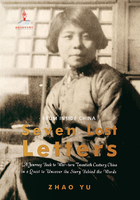Chapter 1
THE FAMILY OF Dashwood had been long settled in Sussex. Their estate was large, and their residence was at Norland Park, in the centre of their property, where, for many generations, they had lived in so respectable a manner as to engage the general good opinion of their surrounding acquaintance. The late owner of this estate was a single man who lived to a very advanced age, and who for many years of his life had a constant companion and housekeeper in his sister. But her death, which happened ten years before his own, produced a great alteration in his home; for to supply her loss, he invited and received into his house the family of his nephew Mr. Henry Dashwood, the legal inheritor of the Norland estate, and the person to whom he intended to bequeath it. In the society of his nephew and niece, and their children, the old gentleman's days were comfortably spent. His attachment to them all increased. The constant attention of Mr. and Mrs. Henry Dashwood to his wishes, which proceeded not merely from interest, but from goodness of heart, gave him every degree of solid comfort which his age could receive; and the cheerfulness of the children added a relish to his existence.
By a former marriage, Mr. Henry Dashwood had one son; by his present lady, three daughters. The son, a steady respectable young man, was amply provided for by the fortune of his mother, which had been large, and half of which devolved on him on his coming of age. By his own marriage, likewise, which happened soon afterwards, he added to his wealth. To him, therefore, the succession to the Norland estate was not so really important as to his sisters; for their fortune, independent of what might arise to them from their father's inheriting that property, could be but small. Their mother had nothing, and their father only seven thousand pounds in his own disposal, for the remaining moiety of his first wife's fortune was also secured to her child, and he had only a life interest in it.
The old gentleman died; his will was read, and like almost every other will gave as much disappointment as pleasure. He was neither so unjust, nor so ungrateful, as to leave his estate from his nephew;but he left it to him on such terms as destroyed half the value of the bequest. Mr. Dashwood had wished for it more for the sake of his wife and daughters than for himself or his son; but to his son and his son's son, a child of four years old, it was secured in such a way as to leave to himself no power of providing for those who were most dear to him, and who most needed a provision, by any charge on the estate, or by any sale of its valuable woods. The whole was tied up for the benefit of this child, who, in occasional visits with his father and mother at Norland, had so far gained on the affections of his uncle, by such attractions as are by no means unusual in children of two or three years old; an imperfect articulation, an earnest desire of having his own way, many cunning tricks, and a great deal of noise, as to outweigh all the value of all the attention which, for years, he had received from his niece and her daughters. He meant not to be unkind however, and as a mark of his affection for the three girls, he left them a thousand pounds apiece.
Mr. Dashwood's disappointment was at first severe; but his temper was cheerful and sanguine, and he might reasonably hope to live many years, and by living economically, lay by a considerable sum from the produce of an estate already large, and capable of almost immediate improvement. But the fortune, which had been so tardy in coming, was his only one twelvemonth. He survived his uncle no longer; and ten thousand pounds, including the late legacies, was all that remained for his widow and daughters.
His son was sent for, as soon as his danger was known, and to him Mr. Dashwood recommended, with all the strength and urgency which illness could command, the interest of his mother-in-law and sisters.
Mr. John Dashwood had not the strong feelings of the rest of the family; but he was affected by a recommendation of such a nature at such a time, and he promised to do everything in his power to make them comfortable. His father was rendered easy by such an assurance, and Mr. John Dashwood had then leisure to consider how much there might prudently be in his power to do for them.
He was not an ill-disposed young man, unless to be rather cold-hearted and rather selfish is to be ill-disposed: but he was, in general, well-respected; for he conducted himself with propriety in the discharge of his ordinary duties. Had he married a more amiable woman, he might have been made still more respectable than he was; he might even have been made amiable himself; for he was very young when he married and very fond of his wife. But Mrs. John Dashwood was a strong caricature of himself; more narrow-minded and selfish.
When he gave his promise to his father, he meditated within himself to increase the fortunes of his sisters by the present of a thousand pounds apiece. He then really thought himself equal to it. The prospect of four thousand a year, in addition to his present income, besides the remaining half of his own mother's fortune, warmed his heart and made him feel capable of generosity. "Yes, he would give them three thousand pounds:it would be liberal and handsome! It would be enough to make them completely easy. Three thousand pounds! He could spare so considerable a sum with little inconvenience." He thought of it all day long and for many days successively, and he did not repent.
No sooner was his father's funeral over than Mrs. John Dashwood,without sending any notice of her intention to her mother-in-law, arrived with her child and their attendants. No one could dispute her right to come; the house was her husband's from the moment of his father's decease; but the indelicacy of her conduct was so much the greater, and to a woman in Mrs. Dashwood's situation, with only common feelings, must have been highly unpleasing;but in her mind there was a sense of honour so keen, a generosity so romantic, that any offence of the kind, by whomsoever given or received, was to her a source of immovable disgust. Mrs. John Dashwood had never been a favourite with any of her husband's family; but she had had no opportunity till the present of showing them with how little attention to the comfort of other people she could act when occasion required it.
So acutely did Mrs. Dashwood feel this ungracious behaviour, and so earnestly did she despise her daughter-in-law for it that on the arrival of the latter she would have quitted the house forever, had not the entreaty of her eldest girl induced her first to reflect on the propriety of going, and her own tender love for all her three children determined her afterwards to stay, and for their sakes avoid a breach with their brother.
Elinor, this eldest daughter whose advice was so effectual,possessed a strength of understanding and coolness of judgment which qualified her, though only nineteen, to be the counsellor of her mother, and enabled her frequently to counteract, to the advantage of them all, that eagerness of mind in Mrs. Dashwood which must generally have led to imprudence. She had an excellent heart; her disposition was affectionate, and her feelings were strong; but she knew how to govern them: it was a knowledge which her mother had yet to learn, and which one of her sisters had resolved never to be taught.
Marianne's abilities were in many respects quite equal to Elinor's. She was sensible and clever, but eager in everything; her sorrows, her joys, could have no moderation. She was generous, amiable, interesting:she was everything but prudent. The resemblance between her and her mother was strikingly great.
Elinor saw with concern the excess of her sister's sensibility, but by Mrs. Dashwood it was valued and cherished. They encouraged each other now in the violence of their affliction. The agony of grief which overpowered them at first was voluntarily renewed, was sought for, was created again and again. They gave themselves up wholly to their sorrow, seeking increase of wretchedness in every reflection that could afford it, and resolved against ever admitting consolation in future. Elinor, too, was deeply afflicted; but still she could struggle, she could exert herself. She could consult with her brother, could receive her sister-in-law on her arrival, and treat her with proper attention; and could strive to rouse her mother to similar exertion, and encourage her to similar forbearance.
Margaret, the other sister, was a good-humoured well-disposed girl;but as she had already imbibed a good deal of Marianne's romance, without having much of her sense, she did not at thirteen bid fair to equal her sisters at a more advanced period of life.
Chapter 2
MRS. JOHN DASHWOOD now installed herself mistress of Norland, and her mother and sisters-in-law were degraded to the condition of visitors. As such, however, they were treated by her with quiet civility, and by her husband with as much kindness as he could feel towards anybody beyond himself, his wife, and their child. He really pressed them, with some earnestness, to consider Norland as their home; and as no plan appeared so eligible to Mrs. Dashwood as remaining there till she could accommodate herself with a house in the neighbourhood, his invitation was accepted.
A continuance in a place where everything reminded her of former delight was exactly what suited her mind. In seasons of cheerfulness, no temper could be more cheerful than hers, or possess in a greater degree that sanguine expectation of happiness which is happiness itself. But in sorrow she must be equally carried away by her fancy, and as far beyond consolation as in pleasure she was beyond alloy.
Mrs. John Dashwood did not at all approve of what her husband intended to do for his sisters. To take three thousand pounds from the fortune of their dear little boy would be impoverishing him to the most dreadful degree. She begged him to think again on the subject. How could he answer it to himself to rob his child, and his only child too, of so large a sum? And what possible claim could the Miss Dashwoods, who were related to him only by halfblood, which she considered as no relationship at all, have on his generosity to so large an amount. It was very well known that no affection was ever supposed to exist between the children of any man by different marriages; and why was he to ruin himself and their poor little Harry by giving away all his money to his half sisters?
"It was my father's last request to me," replied her husband, "that I should assist his widow and daughters."
"He did not know what he was talking of, I dare say; ten to one but he was light-headed at the time. Had he been in his right senses, he could not have thought of such a thing as begging you to give away half your fortune from your own child."
"He did not stipulate for any particular sum, my dear Fanny; he only requested me in general terms to assist them and make their situation more comfortable than it was in his power to do. Perhaps it would have been as well if he had left it wholly to myself. He could hardly suppose I should neglect them. But as he required the promise, I could not do less than give it: at least I thought so at the time. The promise, therefore, was given, and must be performed. Something must be done for them whenever they leave Norland and settle in a new home."
"Well,then,let something be done for them;but that something need not be three thousand pounds. Consider," she added, "that when the money is once parted with, it never can return. Your sisters will marry, and it will be gone forever. If, indeed, it could ever be restored to our poor little boy..."
"Why, to be sure," said her husband very gravely, "that would make a great difference. The time may come when Harry will regret that so large a sum was parted with. If he should have a numerous family, for instance, it would be a very convenient addition."
"To be sure it would."
"Perhaps, then, it would be better for all parties if the sum were diminished one half. Five hundred pounds would be a prodigious increase to their fortunes!"
"Oh! beyond anything great! What brother on earth would do half so much for his sisters,even if really his sisters!And as it is—only halfblood!—But you have such a generous spirit!"
"I would not wish to do anything mean," he replied. "One had rather on such occasions do too much than too little. No one, at least, can think I have not done enough for them: even themselves, they can hardly expect more."
"There is no knowing what they may expect,"said the lady,"but we are not to think of their expectations: the question is, what you can afford to do."
"Certainly,and I think I may afford to give them five hundred pounds apiece. As it is, without any addition of mine, they will each have above three thousand pounds on their mother's death:a very comfortable fortune for any young woman."
"To be sure it is: and, indeed, it strikes me that they can want no addition at all. They will have ten thousand pounds divided amongst them. If they marry, they will be sure of doing well, and if they do not, they may all live very comfortably together on the interest of ten thousand pounds."
"That is very true, and therefore I do not know whether, upon the whole, it would not be more advisable to do something for their mother while she lives rather than for them, something of the annuity kind I mean. My sisters would feel the good effects of it as well as herself. A hundred a year would make them all perfectly comfortable."
His wife hesitated a little, however, in giving her consent to this plan.
"To be sure," said she, "it is better than parting with fifteen hundred pounds at once. But then if Mrs. Dashwood should live fifteen years, we shall be completely taken in."
"Fifteen years! My dear Fanny; her life cannot be worth half that purchase."
"Certainly not; but if you observe, people always live forever when there is any annuity to be paid them; and she is very stout and healthy, and hardly forty. An annuity is a very serious business; it comes over and over every year, and there is no getting rid of it. You are not aware of what you are doing. I have known a great deal of the trouble of annuities; for my mother was clogged with the payment of three to old superannuated servants by my father's will, and it is amazing how disagreeable she found it. Twice every year these annuities were to be paid; and then there was the trouble of getting it to them; and then one of them was said to have died, and afterwards it turned out to be no such thing. My mother was quite sick of it. Her income was not her own, she said, with such perpetual claims on it; and it was the more unkind in my father, because otherwise the money would have been entirely at my mother's disposal without any restriction whatever. It has given me such an abhorrence of annuities that I am sure I would not pin myself down to the payment of one for all the world."
"It is certainly an unpleasant thing," replied Mr. Dashwood, "to have those kind of yearly drains on one's income. One's fortune, as your mother justly says,is not one's own.To be tied down to the regular payment of such a sum on every rent day is by no means desirable: it takes away one's independence."
"Undoubtedly; and after all you have no thanks for it. They think themselves secure, you do no more than what is expected, and it raises no gratitude at all. If I were you, whatever I did should be done at my own discretion entirely. I would not bind myself to allow them anything yearly. It may be very inconvenient some years to spare a hundred, or even fifty pounds from our own expenses. "
"I believe you are right, my love; it will be better that there should be no annuity in the case; whatever I may give them occasionally will be of far greater assistance than a yearly allowance, because they would only enlarge their style of living if they felt sure of a larger income and would not be sixpence the richer for it at the end of the year. It will certainly be much the best way. A present of fifty pounds, now and then, will prevent their ever being distressed for money, and will, I think, be amply discharging my promise to my father."
"To be sure it will. Indeed, to say the truth, I am convinced within myself that your father had no idea of your giving them any money at all. The assistance he thought of, I dare say, was only such as might be reasonably expected of you; for instance, such as looking out for a comfortable small house for them, helping them to move their things, and sending them presents of fish and game, and so forth, whenever they are in season. I'll lay my life that he meant nothing further; indeed, it would be very strange and unreasonable if he did. Do but consider, my dear Mr. Dashwood, how excessively comfortable your mother-in-law and her daughters may live on the interest of seven thousand pounds, besides the thousand pounds belonging to each of the girls, which brings them in fifty pounds a year apiece, and of course they will pay their mother for their board out of it. Altogether, they will have five hundred a year amongst them, and what on earth can four women want for more than that? They will live so cheap! Their housekeeping will be nothing at all. They will have no carriage, no horses, and hardly any servants;they will keep no company, and can have no expenses of any kind! Only conceive how comfortable they will be! Five hundred a year! I am sure I cannot imagine how they will spend half of it; and as to your giving them more, it is quite absurd to think of it. They will be much more able to give you something."
"Upon my word," said Mr. Dashwood, "I believe you are perfectly right. My father certainly could mean nothing more by his request to me than what you say. I clearly understand it now, and I will strictly fulfil my engagement by such acts of assistance and kindness to them as you have described. When my mother removes into another house my services shall be readily given to accommodate her as far as I can. Some little present of furniture too may be acceptable then."
"Certainly,"returned Mrs.John Dashwood."But,however,one thing must be considered. When your father and mother moved to Norland, though the furniture of Stanhill was sold, all the china, plate, and linen was saved, and is now left to your mother. Her house will therefore be almost completely fitted up as soon as she takes it."
"That is a material consideration undoubtedly. A valuable legacy indeed! And yet some of the plate would have been a very pleasant addition to our own stock here."
"Yes, and the set of breakfast china is twice as handsome as what belongs to this house. A great deal too handsome, in my opinion, for any place they can ever afford to live in.But,however,so it is.Your father thought only of them.And I must say this:that you owe no particular gratitude to him, nor attention to his wishes, for we very well know that if he could,he would have left almost everything in the world to them."
This argument was irresistible. It gave to his intentions whatever of decision was wanting before; and he finally resolved that it would be absolutely unnecessary, if not highly indecorous, to do more for the widow and children of his father than such kind of neighbourly acts as his own wife pointed out.
Chapter 3
MRS. DASHWOOD REMAINED at Norland several months; not from any disinclination to move when the sight of every well-known spot ceased to raise the violent emotion which it produced for a while;for when her spirits began to revive, and her mind became capable of some other exertion than that of heightening its affliction by melancholy remembrances, she was impatient to be gone and indefatigable in her inquiries for a suitable dwelling in the neighbourhood of Norland; for to remove far from that beloved spot was impossible. But she could hear of no situation that at once answered her notions of comfort and ease, and suited the prudence of her eldest daughter, whose steadier judgment rejected several houses as too large for their income, which her mother would have approved.
Mrs. Dashwood had been informed by her husband of the solemn promise on the part of his son in their favour, which gave comfort to his last earthly reflections. She doubted the sincerity of this assurance no more than he had doubted it himself, and she thought of it for her daughters' sake with satisfaction, though as for herself she was persuaded that a much smaller provision than 7000ā would support her in affluence. For their brother's sake too, for the sake of his own heart she rejoiced; and she reproached herself for being unjust to his merit before in believing him incapable of generosity. His attentive behaviour to herself and his sisters convinced her that their welfare was dear to him, and for a long time she firmly relied on the liberality of his intentions.
The contempt which she had very early in their acquaintance felt for her daughter-in-law was very much increased by the further knowledge of her character, which half a year's residence in her family afforded; and perhaps in spite of every consideration of politeness or maternal affection on the side of the former, the two ladies might have found it impossible to have lived together so long had not a particular circumstance occurred to give still greater eligibility, according to the opinions of Mrs. Dashwood, to her daughters' continuance at Norland.
This circumstance was a growing attachment between her eldest girl and the brother of Mrs. John Dashwood, a gentlemanlike and pleasing young man who was introduced to their acquaintance soon after his sister's establishment at Norland, and who had since spent the greatest part of his time there.
Some mothers might have encouraged the intimacy from motives of interest, for Edward Ferrars was the eldest son of a man who had died very rich; and some might have repressed it from motives of prudence, for except a trifling sum, the whole of his fortune depended on the will of his mother. But Mrs. Dashwood was alike uninfluenced by either consideration. It was enough for her that he appeared to be amiable, that he loved her daughter, and that Elinor returned the partiality. It was contrary to every doctrine of hers that difference of fortune should keep any couple asunder who were attracted by resemblance of disposition;and that Elinor's merit should not be acknowledged by everyone who knew her, was to her comprehension impossible.
Edward Ferrars was not recommended to their good opinion by any peculiar graces of person or address. He was not handsome, and his manners required intimacy to make them pleasing. He was too diffident to do justice to himself; but when his natural shyness was overcome, his behaviour gave every indication of an open affectionate heart. His understanding was good, and his education had given it solid improvement. But he was neither fitted by abilities nor disposition to answer the wishes of his mother and sister, who longed to see him distinguished—as—they hardly knew what. They wanted him to make a fine figure in the world in some manner or other. His mother wished to interest him in political concerns, to get him into parliament, or to see him connected with some of the great men of the day. Mrs. John Dashwood wished it likewise; but in the meanwhile, till one of these superior blessings could be attained, it would have quieted her ambition to see him driving a barouché. But Edward had no turn for great men or barouchés. All his wishes centered in domestic comfort and the quiet of private life. Fortunately he had a younger brother who was more promising.















